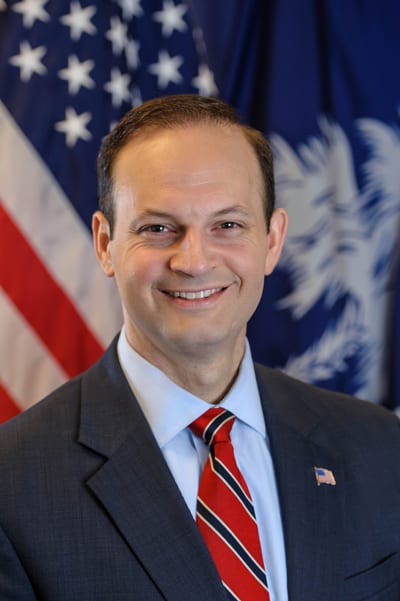CORRECTION:
Attorneys for the Kleckley/Condon case in Charleston, S.C. filed for reimbursement of $151,709 in legal fees. Those representing Bradacs and Goodwin have not yet filed for reimbursement of legal fees.
UPDATE:
Attorneys in Wisconsin have filed for reimbursement of $1.2 million in legal fees after successfully challenging that state’s marriage ban. Plaintiffs claim the large fee is due to the state’s vigorous defense of the law that discriminates against gay and lesbian couples.
ORIGINAL POST:
South Carolina Attorney General Alan Wilson announced he will continue to fight marriage equality in the state, so the winning side is requesting the state pay its legal fees.
The case was filed by Katherine Bradacs and Tracie Goodwin, who were married in Washington, D.C. Bradacs is a South Carolina Highway Patrol trooper and Goodwin is an Air Force veteran. They have three children. They won their case by summary judgement and Wilson’s request for a stay was denied.
South Carolina is in the 4th Circuit where Wilson remains the only attorney general continuing to fight marriage equality. Virginia, West Virginia and North Carolina — all also in the 4th Circuit — all became marriage equality states after the Supreme Court rejected a Virginia appeal in October.
Now, the attorneys for Bradacs and Goodwin have filed a petition in federal court seeking $152,709 in compensation for legal fees. The attorneys said that, if successful, the money will go to Lambda Legal Defense and Education Fund and the South Carolina Equality Coalition.
Should the marriage equality attorneys prevail, defending discrimination could become expensive for Wilson and the defenders of bigotry because the attorney general continues to defend other marriage equality suits as well.
Federal law informally refers to lawyers acting in the public interest as private attorneys general. When defending basic constitutional rights, the law allows the winning plaintiffs to seek compensation from the losing defendant because citizens must hire their own attorneys to defend their basic rights.
No word on plaintiffs in other states also seeking compensation.

















